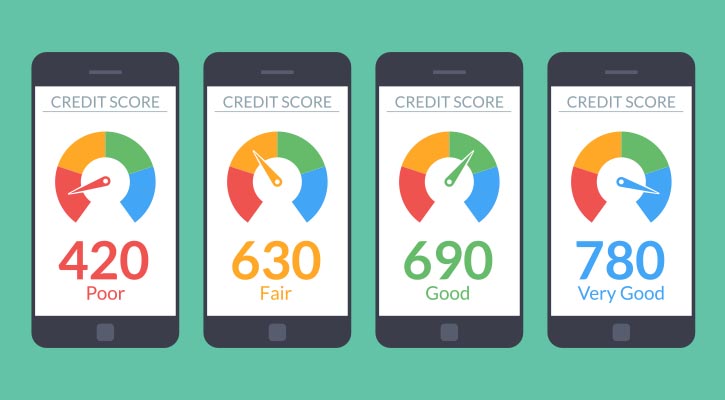
Credit: the word that inspires both nervousness and necessity when heard. Credit is a huge part of modern life, and our credit identity is the make-or- break factor in determining how we can use the system. There are several factors that contribute to our credit rating, with credit score and creditworthiness being the most important. While both connected, they are different concepts and should both be understood in their own right before learning how to conquer both and be a credit crusader!
Credit Score
A credit score is a numeric representation of a person’s creditworthiness that assists lenders in determining the probability that a loan will be repaid. Credit history, current amounts owed, length of credit history, new credit and types of credit in use are all taken into consideration when calculating credit score. The credit score number itself is a three-digit number ranging between 300 and 850. The higher the number, the better the credit score.
The most common derivation of a credit score is a FICO (Fair Isaac Corporation) score. Although there are other types of credit scores out there, you will probably interact with FICO the most. You might already be familiar with the term, even if you don’t fully understand its implications.
Creditworthiness
Your creditworthiness simply means your assessed ability to repay your debt or default on your loan. Factors that contribute to creditworthiness include credit score, payment history, and debt-to-income ratio. Additional assets can also be taken into consideration, as lenders prefer to know that there are alternative ways to repay the loan besides income alone.
Credit reports are a large part of what physically represents your creditworthiness to a lender, as they show your payment history trends over long lengths of time. Late or missing payments can show on the report for up to seven years past the occurrence. Think about that for a second – you could have completely changed your spending habits over the course of that time, but those negative strikes can still show. Do not fret, there are ways to improve your creditworthiness over time. It’s just something to be aware of to internalize the importance of paying all bills on time.
Score + Worthiness = Credit Credibility
Although two separate entities, credit score and creditworthiness both integrate and affect each other. Making smart, consistent decisions with your money and credit will have a positive impact on both. Here are some tips to help you on your road to being a credible credit client:
1) Utilizing free credit checks: There are tons of free credit checks out there that allow you to see your credit report. This is the best place to start; you want to see where you stand to get an idea for how financial institutions will view and receive you. This is also the best way to plan your strategy for improving both credit score and creditworthiness. NOTE: the free credit check is just the report, not your actual credit score.
2) Understanding my credit rating: Now that you have the report, you can understand your credit rating on a deeper level. It’ll be easier to identify the specific areas you need to improve upon and make small progress steps in those areas. Take a deep breath and remember that it will take time to make positive change in the system, but you can do it!
3) Small steps over time = big change: Armed with your free credit check and your credit rating, you can start implementing gradual changes to your financial habits that you can maintain over a long period of time. Some ideas for this are:
- Keeping your credit card balance low: The lower your credit utilization ratio (or the ratio of your credit card balance to your credit card limit), the better your credit score.
- Change around some household expenses: Sometimes good spending can be a result of reevaluating monthly expenses. See what expenses you really don’t need to give yourself a cushion for crucial expenses, or to contribute towards a lower credit utilization ratio.
- Open new, manageable accounts and pay them off in full: this is a perfect way to build your credit worthiness and increase your credit score. Get a credit card you only use for one type of expense. That way, you know you will always pay on time, keep the balance low, and establish your credit rating in a positive way.


















